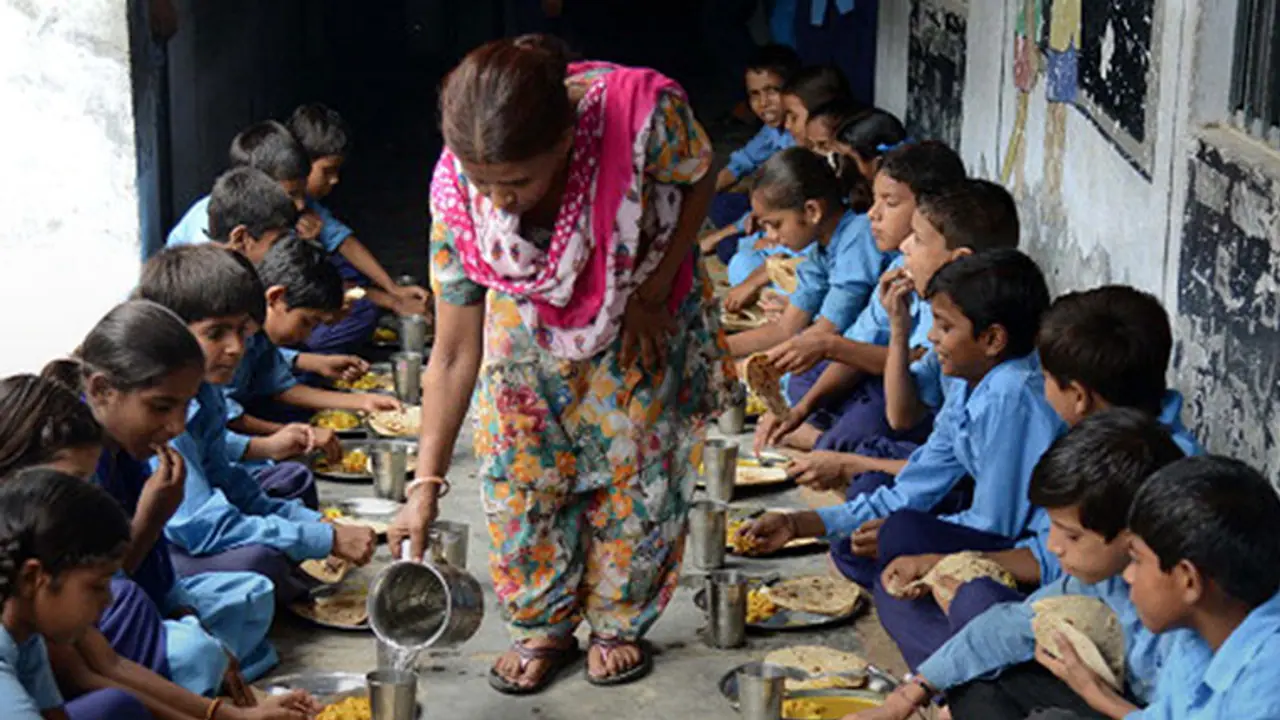Most of the children who study in village government schools are very poor and end up eating this mostly as their only meal for the day The flagship Mid Day Meal scheme in Rajasthan, Orissa, Karnataka and Madhya Pradesh is afflicted with largescale caste and gender-based discrimination

The Mid Day meal scheme received the support of the Supreme Court in 2001. Many Indian states have adopted it and as a result offer free meals to children in state-run or state-assisted schools. It serves to feed more than 120 million children who otherwise might not be able to eat a proper meal in a day.
While this is a beneficial scheme, it has its own pitfalls and drawbacks which end up jeopardising the initiative. Take the recent incident in Bhopal for example. Students of a government primary school have refused to take Mid Day meals prepared by scheduled caste women in Tikamgarh district, according to a report in the TOI. Of the 89 students the government primary school, only 10 take the lunch. Students said their parents have "stopped" them from eating the food. Consequently, at any given day only 8 to 10 students who belong to Vanshkar community eat lunch.
We list 5 important reasons that chart how the Mid Day meal scheme is riddled with problems in India:
Focus is on reach not on quality or quantity

The government only concentrates on statistics as to how many number of schools they are able to cover and provide food. They don't give importance to quality. Political parties use this programme to toot their party’s horn and show how much they are doing for the children in their constituencies. Not once to do they bother to check whether the scheme is being implemented properly or that the children it is intended for are actually eating it.
Serving death for lunch

Most of the children who study in village government schools are very poor and end up eating this mostly as their only meal for the day. There is no one to inspect the quality of the food being served to them. The callous attitude can be seen in this instance in Bihar where 23 children lost their lives after eating their Mid Day meal on July 16, 2013. The forensic reports say that it was a case of poisoning because the oil used for cooking was kept in was previously used to store pesticide. There are many such unreported cases where students who eat this meal have reported of dysentery and ill health. So parents and children fearing safety have declined to have food served in these midday meals. The MDMS guidelines dictate that the meal should be of good quality, besides being nutritious, tasty, and digestible, and varying from day to day to ensure variety in the menu. High standards of hygiene and cleanliness are expected to be maintained during the cooking and serving of the meal, along with transparency in accounts, which would be open for public scrutiny.
Corruption

Is there any part of the country or is there any segment of the running of the system without corruption? The answer is NO. Here’s a report conducted in 2015. CAG's performance audit report of Mid Day meal not only found financial mismanagement by the HRD ministry but it has also discovered states having indulged in diversion of funds to the tune of ₹123.29 crore meant for the scheme. The report further highlights how in Karnataka, ISKCON which supplied Mid Day meals to children of 304 schools in two taluks of Bellary district "used 1.04 lakh kg less rice than the prescribed norms in preparing MDM". And while this scheme runs with the provision that the food needs to be cooked by mothers, many of the states did not adhere to these norms. The guidelines also say that the meal should be provided every day at a regular time, that all supplies should reach every school on time. Under this scheme food supplies are being diverted, supplies are being halved and there is also a lot of wastage
Casteism

The flagship Mid Day meal scheme in Rajasthan, Orissa, Karnataka and Madhya Pradesh is afflicted with largescale caste and gender-based discrimination. Like this recent incident in Madhya Pradesh points out. In some places the upper caste children refuse to eat food cooked by SC/ST women, in some places the Dalit and backward classes students are made to sit separately from the others, other states have reported incidents where food was reportedly thrown at the Dalit students. The scheme is supposed to work as per the guidelines. It is also expected to use the opportunity to impart a spirit of equality among and sharing by children of different social backgrounds.
Lack of implementation

In an academic paper titled Caste Discrimination in Mid day meals (MDM), the authors conducted a survey to come to a conclusion. It emerged during the study that though 99 per cent of the schools had facilities for operation of the MDMS, and 97 per cent of them provide cooked meal during most the days, yet in about 11 per cent of the villages, the food was served only a few days a week, while in 2 per cent of the cases, it was served very rarely. In 38 per cent of the cases, the prescribed menu was not followed and the quality of food was also allegedly poor. The location also has consequences for the attendance in the school by the SC children and their access to the MDMS, as these children often face harassment while passing through the high caste localities, which discourages them from attending school, thereby also adversely affecting their participation in the MDMS.
